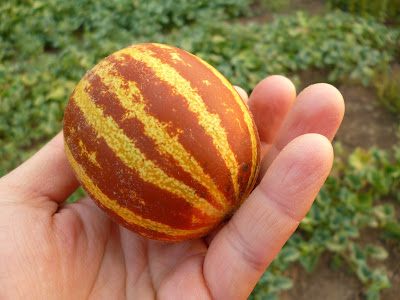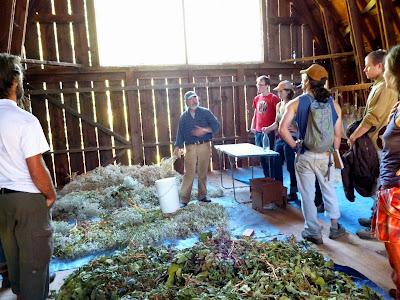If you read my blog you probably know that food access is an
interest of mine.
I am frustrated when I
see how much good food gets wasted (even on a small organic farm) because it was harvested and packed
but never purchased or donated.
Yes, the unsold
food could become good compost, but that’s really labor-intensive compost!
There are plenty of people who would
eat that food if they could get their hands on it.
When I imagine this sort of problem magnified
on a national or international level, I sometimes feel overwhelmed.
Many people I know think hunger exists because there is not enough food
being grown, but that explanation is flawed.
The food is out there. Hunger is a problem of broken economic and food systems: the richest get
richer at the expense of everyone else.
Everyone else must now try harder than ever to make ends meet. At the same time, while the distribution of
sustainably grown produce is still expanding, the processed food industry has
already infiltrated grocery stores, corner markets, and food pantries with its
cheap and addicting products.
Yes, this is a bit of a downer.
But things that are broken can be built up again, and in the meantime we
can build safety nets.
~~~~~~~~~~
I felt like I needed to mention the food access piece again
because while I definitely have frustrations about how to connect the good food to
the eater, I was able to provide some much-needed good meals when we took some
of DBF’s squash to the
Gospel Rescue Mission (a local shelter and meal center)
and Josephine County Food Bank.
Steve has been bringing his winter squash to the Mission’s kitchen for a
few years now because he sees it as an “everybody wins” situation. He drives a truckload of squash into
town. At the Mission’s kitchen, volunteers (many of whom
are current shelter residents) clean and chop the squash. More volunteers scoop the seeds into 5 gallon
buckets and finally another set of volunteers packages the remaining squash
meat into bags and boxes. The Mission and food bank get
to keep the ready-to-cook squash, which will provide thousands of meals both immediately
and throughout the year to those who need it. Steve takes home the buckets of seeds (a very
important seed crop for his business) and gets a tax deduction for his squash
donation. What would take days with a
few people on the farm happens in a few hours, with the added bonus of
connecting more good food to more eaters.
We used a full team to get the job done:
 |
| washing station |
 |
| chop chop |
 |
| scooping & packing |
 |
| squash ready for the food pantry |
 |
| a full truck |
Then we took the seeds back to the farm:
 |
| seeds fermenting in big buckets |
 |
| a top-down view |
 |
| cleaned seeds drying on racks |
This project will continue with our 6000 pounds of delicata squash...


















































